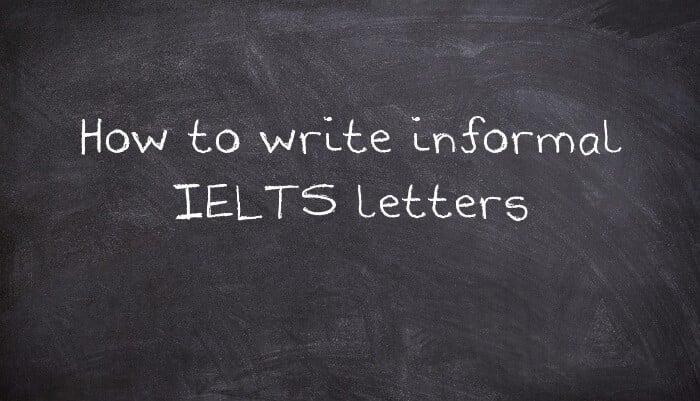This article provides valuable tips on writing friendly letters to impress the examiner in IELTS General Writing Task 1. It offers advice on starting, ending, and the body of informal letters, specifically for tasks like the following:
“Your friend has just obtained a working holiday visa to live in your country for a year. He/She would like your advice on learning some of your language before they arrive.
Write a letter to your friend. In your letter
- describe how your language compares to other languages
- recommend some good language learning materials
- warn him/her of some difficulties he/she is likely to have
Write at least 150 words.
You do NOT need to write any addresses.
Begin your letter as follows:
Dear…,”
How to start informal IELTS letters
Before you start writing an informal letter for IELTS, ensure that you use an appropriate opening greeting. “Dear Sir or Madam,” indicates a formal letter, while “Dear…,” is usually used for informal letters, such as when writing to friends. In situations where both formal and informal letters are acceptable, this article provides guidance on addressing them.
Informal IELTS letters should always begin with “Dear + first name,” to maintain a friendly tone. Remember to include a comma after the name, as instructed. Avoid using expressions like “Dear friend,” followed by a name, as they are not commonly used in modern English.
Before addressing the three bullet points in the question, start your letter with a friendly opening line such as:
- (It was) so nice to get your letter.
- (It was so) lovely to hear from you (again).
- (I) was so thrilled to get your letter (telling me that…)
- It was so nice to hear that…
- How’s… going?
- How are you getting on with…?
- Hope… is going okay.
- Long time no see! How have you been (since we last met)?
- Hope you’re enjoying…
- How was your…?
- Congratulations on…/ Congrats on…
- Sorry it took me so long to get back to you.
- Sorry it’s been so long since I was last in touch.
Ensure your opening line sets a friendly tone before addressing the main content of the letter.
How to write the body of informal IELTS letters
When writing the body of an informal IELTS letter, it is essential to cover all three bullet points provided in the question. Structure your letter with three body paragraphs, each consisting of at least two sentences. Begin each paragraph informally using phrases like “About…,” to address the key points effectively.
The body of informal letters typically involves giving advice, responding to invitations, conveying negative information, making requests, expressing gratitude, and sharing positive news. Use casual language and idioms to maintain a friendly tone throughout the letter.
When giving advice, use informal phrases such as:
- There’s no way I’d recommend…
- Avoid…
- I reckon… would be right up your street
Informal apologies and bad news phrases include:
- So sorry about…
- Sorry to say that…
Informal ways of thanking someone can be expressed with phrases like:
- Thanks a million for…
- Thanks soooo much for…
- Cheers for…
- You’re a lifesaver!
- There’s no way I could have… without your…
Continue the body of your letter by addressing each point with a friendly and informal tone.
How to close informal IELTS letters
Just as formal letters require a polite closing, informal letters should also end on a friendly note. Include a closing line, a closing greeting, and your name at the end to maintain a warm tone throughout the letter.
Informal closing lines can include:
- Write soon!
- Can’t wait to hear from you (about…)
- If you need any (more) info, drop me a line anytime.
- Give me a ring (anytime) if I’ve missed anything out.
- Looking forward to seeing you then/ soon/…
- Keep in touch!
- Hope you can come(!)
- Best of luck with….
- Thanks a million.
- Cheers.
- Hope that helps (with…)
For the closing greeting, use informal phrases like “Best wishes,” for work settings or “Lots of love,” for friends. Remember to include a comma after the closing greeting, as instructed.
Sign off with just your first name or use abbreviations like “Al” or “A” to maintain an informal tone.





